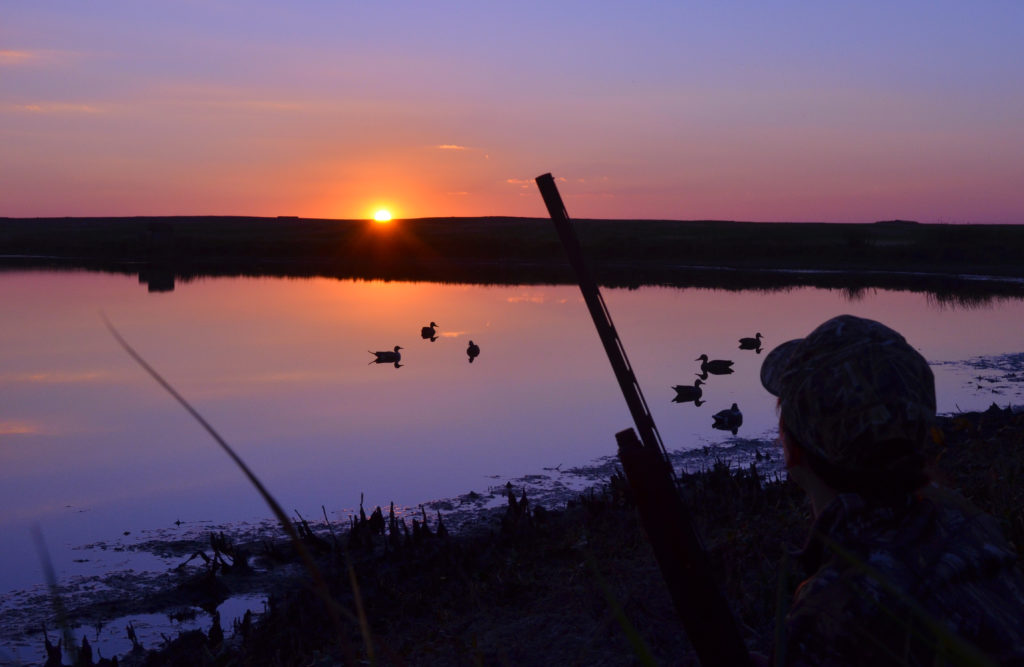The basic needs of America’s world-class trout and waterfowl populations—healthy headwaters and wetlands—are about to be undermined, so sportsmen and women need to act now
We’ve written before about how water is connected, and how pollution from small, diffuse sources can accumulate and create big problems downstream. Scientists and conservationists understand that this is a serious issue, but sportsmen and women are also well-informed—after all, we see the effects directly in our trout streams and from our duck blinds. Perhaps that’s why 83 percent of hunters and anglers, and overwhelmingly across party lines, support the application of Clean Water Act protections for smaller streams and wetlands.
Finalized in 2015, the Clean Water Rule clarifies Clean Water Act protections for 20 million acres of wetlands and thousands of miles of headwater streams—that’s 60 percent of the country’s flowing waters. If we can’t ensure that waters and wetlands are protected at the source, this endangers the future of beloved downstream land and waters.
But for some reason, there’s been some serious misunderstanding as to what this rule does and does not do. With less than 30 days for hunters and anglers to tell the EPA and Army Corps that headwaters and wetlands matter to us, we want to set the facts straight.
By keeping smaller headwaters and wetlands clean, this rule protects:
Early mornings that are worth the extra cup of coffee

Your story about that first catch
A good reason to buy just a few more decoys because you’ll definitely use them this season
That Day Away from the Office
But the rule IS NOT regulating these things:
Puddles
Regular farming practices
What the Rule Does
Without the Clean Water Rule, we risk seeing streams polluted and wetlands destroyed because of confusion as to which waters are protected under the Clean Water Act. This ambiguity started with two Supreme Court decisions, which chipped away protections for headwater streams and wetlands that had been protected until that point. After the 2006 Rapanos v. United States case, Chief Justice Roberts urged the agencies to write a rule that would clarify which waters were covered. This kicked off a transparent public process that eventually led to the final Clean Water Rule, which was celebrated by sportsmen in 2015.
Rather than operating with clarity and consistency, federal and state water quality personnel will need to determine which waters qualify for protection on a case-by-case basis—throwing tremendous uncertainty back into the decision-making process and burdening water quality managers.
This ambiguity also hurts sportsmen and our efforts to restore clean water resources.
The bottom line is that without Clean Water Act protections, wetlands that serve as key habitat for waterfowl can be drained and smaller headwater streams that are crucial spawning areas for trout and other fish can be polluted. Pollution doesn’t simply stay put in headwaters; it flows into larger water bodies downstream, damaging more fish and wildlife habitat along the way.
There’s Less Time Than Before
Any time the federal government creates or repeals a rule that government agencies and American citizens have to follow, they’re required to have a public comment period. When the Clean Water Rule was created in 2015, sportsmen and women had more than 200 days to comment on the proposed rule. This time around there are only 30 days to make our voices heard.
This rule could impact our access and traditions for the foreseeable future, but we’ve been given very little time to speak up about it.
Don’t let the opportunity slip by. Click HERE to tell the EPA and the Army Corps of Engineers that headwater streams and wetlands matter to sportsmen and women. And share your stories to make it personal—because it is. If we want to preserve our way of life and ensure that the next generation has quality opportunities to hunt and fish, we need to watch out for all of our streams and wetlands.
The post To Have Great Fishing Anywhere, We Need Clean Water Everywhere appeared first on Theodore Roosevelt Conservation Partnership.
Powered by WPeMatico
